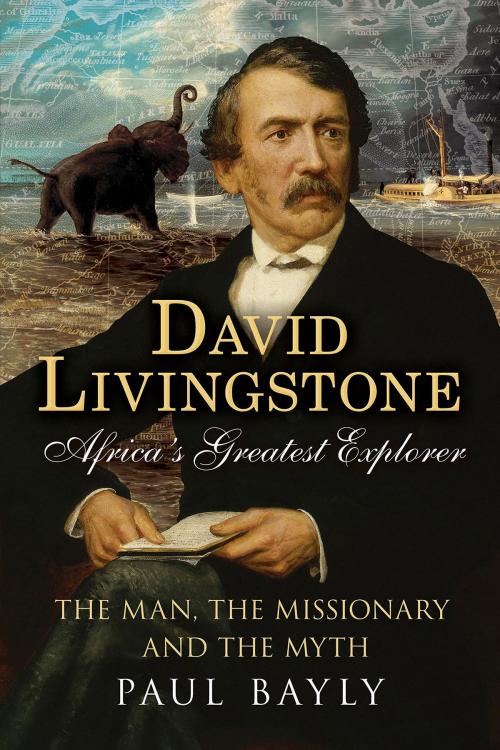David Livingstone, Africa's Greatest Explorer
The Man, the Missionary and the Myth
Biography & Memoir, Artists, Architects & Photographers, Historical| Author: | Paul Bayly | ISBN: | 1230001514186 |
| Publisher: | Fonthill Media | Publication: | January 20, 2017 |
| Imprint: | Language: | English |
| Author: | Paul Bayly |
| ISBN: | 1230001514186 |
| Publisher: | Fonthill Media |
| Publication: | January 20, 2017 |
| Imprint: | |
| Language: | English |
In 1841, a twenty-eight-year-old Scottish missionary, David Livingstone, began the first of his exploratory treks into the African veldt. During the course of his lifetime, he covered over 29,000 miles uncovering what lay beyond rivers and mountain ranges where no other white man had ever been. Livingstone was the first European to make a trans-African passage from modern day Angola to Mozambique and he discovered and named numerable lakes, rivers and mountains. His explorations are still considered one of the toughest series of expeditions ever undertaken. He faced an endless series of life-threatening situations, often at the hands of avaricious African chiefs, cheated by slavers traders and attacked by wild animals. He was mauled by a lion, suffered thirst and starvation and was constantly affected by dysentery, bleeding from hemorrhoids, malaria and pneumonia. This biography covers his life but also examines his relationship with his wife and children who were the main casualties of his endless explorations in Africa. It also looks Livingstone's legacy through to the modern day. Livingstone was an immensely curious person and he made a habit of making meticulous observations of the flora and fauna of the African countryside that he passed through. His legacy includes numerable maps and geographical and botanical observations and samples. He was also a most powerful and effective proponent for the abolition of slavery and his message of yesterday is still valid today in a continent stricken with drought, desertification and debt for he argued that the African culture should be appreciated for its richness and diversity. But like all great men, he had great faults. Livingstone was unforgiving of those that he perceived had wronged him; he was intolerant of those who could not match his amazing physical powers; and finally and he had no compunction about distorting the truth, particularly about other people, in order to magnify his already significant achievements.
In 1841, a twenty-eight-year-old Scottish missionary, David Livingstone, began the first of his exploratory treks into the African veldt. During the course of his lifetime, he covered over 29,000 miles uncovering what lay beyond rivers and mountain ranges where no other white man had ever been. Livingstone was the first European to make a trans-African passage from modern day Angola to Mozambique and he discovered and named numerable lakes, rivers and mountains. His explorations are still considered one of the toughest series of expeditions ever undertaken. He faced an endless series of life-threatening situations, often at the hands of avaricious African chiefs, cheated by slavers traders and attacked by wild animals. He was mauled by a lion, suffered thirst and starvation and was constantly affected by dysentery, bleeding from hemorrhoids, malaria and pneumonia. This biography covers his life but also examines his relationship with his wife and children who were the main casualties of his endless explorations in Africa. It also looks Livingstone's legacy through to the modern day. Livingstone was an immensely curious person and he made a habit of making meticulous observations of the flora and fauna of the African countryside that he passed through. His legacy includes numerable maps and geographical and botanical observations and samples. He was also a most powerful and effective proponent for the abolition of slavery and his message of yesterday is still valid today in a continent stricken with drought, desertification and debt for he argued that the African culture should be appreciated for its richness and diversity. But like all great men, he had great faults. Livingstone was unforgiving of those that he perceived had wronged him; he was intolerant of those who could not match his amazing physical powers; and finally and he had no compunction about distorting the truth, particularly about other people, in order to magnify his already significant achievements.















